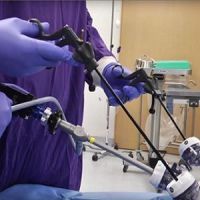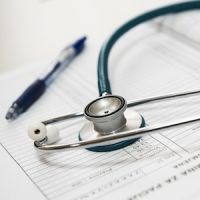Researchers at Massachusetts General Hospital (MGH) have found that some sort of mistake or adverse event occurred in 1 out of 2 surgeries studied and in 5 percent of observed drug administrations. Their study of 277 operations at MGH also found that a third of the errors resulted in adverse drug events or harm to patients. The findings were presented at the ANESTHESIOLOGY® 2015 annual meeting in San Diego, California.
The study is the first to measure the incidence of medication errors and adverse drug events during the perioperative period — ie, immediately before, during and right after a surgical procedure. "Prior to our study, the literature on perioperative medication error rates was sparse and consisted largely of self-reported data, which we know under-represents true error rates,” says lead author Karen C. Nanji, MD, MPH, of the MGH Department of Anaesthesia, Critical Care & Pain Medicine. “Now that we have a better idea of the actual rate and causes of the most common errors, we can focus on developing solutions to address the problems."
Four specially trained members of the research team observed 225 anaesthesia providers — anaesthesiologists, nurse anaesthetists, and resident physicians — during 277 randomly selected operations conducted at the MGH from November 2013 to June 2014. From the time a provider took responsibility for a patient in the preoperative area until the patient arrived in the recovery room or intensive care unit, the observers documented every medication administration, including any medication errors (ie, any kind of mistake in the process of ordering or administering a drug) or adverse drug event (harm or injury to a patient related to a drug, whether or not it was caused by an error).
To confirm that the events they flagged were actually errors, team members also reviewed chart data from the hospital's anaesthesia information management system for all patients whose care had been observed. The study team met weekly to review the recorded events, determine whether or not they constituted true medication errors or adverse drug events, and classify events as to their severity and whether or not they could have been prevented. The results showed that:
The most frequently observed errors were mistakes in labelling, incorrect dosage, neglecting to treat a problem indicated by the patient's vital signs, and documentation errors, according to researchers. Of all the observed adverse drug events and the medication errors that could have resulted in patient harm, 30 percent were considered significant, 69 percent serious and less than 2 percent life-threatening; none were fatal. The overall medication error rate of around 5 percent was the same among anaesthesiologists, nurse anaesthetists and residents.
"We definitely have room for improvement in preventing perioperative medication errors," says Dr. Nanji. "We already have an electronic anaesthesia management and documentation system for medications, patient vital signs and other events occurring in the operating room; and our next step will be to design more comprehensive decision support to further reduce the incidence of errors in the perioperative setting."
Source: Massachusetts General Hospital
Image credit: Pixabay.com
The study is the first to measure the incidence of medication errors and adverse drug events during the perioperative period — ie, immediately before, during and right after a surgical procedure. "Prior to our study, the literature on perioperative medication error rates was sparse and consisted largely of self-reported data, which we know under-represents true error rates,” says lead author Karen C. Nanji, MD, MPH, of the MGH Department of Anaesthesia, Critical Care & Pain Medicine. “Now that we have a better idea of the actual rate and causes of the most common errors, we can focus on developing solutions to address the problems."
Four specially trained members of the research team observed 225 anaesthesia providers — anaesthesiologists, nurse anaesthetists, and resident physicians — during 277 randomly selected operations conducted at the MGH from November 2013 to June 2014. From the time a provider took responsibility for a patient in the preoperative area until the patient arrived in the recovery room or intensive care unit, the observers documented every medication administration, including any medication errors (ie, any kind of mistake in the process of ordering or administering a drug) or adverse drug event (harm or injury to a patient related to a drug, whether or not it was caused by an error).
To confirm that the events they flagged were actually errors, team members also reviewed chart data from the hospital's anaesthesia information management system for all patients whose care had been observed. The study team met weekly to review the recorded events, determine whether or not they constituted true medication errors or adverse drug events, and classify events as to their severity and whether or not they could have been prevented. The results showed that:
- 124 of the 277 operations included at least one medication error or adverse drug event
- Of the almost 3,675 medication administrations in those operations, 193 events, involving 153 medication errors and 91 adverse drug events, were recorded either by direct observation or by chart review.
- Nearly 80 percent of those events were determined to have been preventable
- One-third of the observed medication errors led to an adverse drug event, and the remainder had the potential to cause an adverse event.
The most frequently observed errors were mistakes in labelling, incorrect dosage, neglecting to treat a problem indicated by the patient's vital signs, and documentation errors, according to researchers. Of all the observed adverse drug events and the medication errors that could have resulted in patient harm, 30 percent were considered significant, 69 percent serious and less than 2 percent life-threatening; none were fatal. The overall medication error rate of around 5 percent was the same among anaesthesiologists, nurse anaesthetists and residents.
"We definitely have room for improvement in preventing perioperative medication errors," says Dr. Nanji. "We already have an electronic anaesthesia management and documentation system for medications, patient vital signs and other events occurring in the operating room; and our next step will be to design more comprehensive decision support to further reduce the incidence of errors in the perioperative setting."
Source: Massachusetts General Hospital
Image credit: Pixabay.com
Latest Articles
healthmanagement, perioperative care, adverse drug events, patient safety, medication mistakes, surgery
Researchers at Massachusetts General Hospital (MGH) have found that some sort of mistake or adverse event occurred in 1 out of 2 surgeries studied and in 5 percent of observed drug administrations. Their study of 277 operations at MGH also found that a th



























